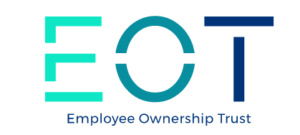Leaders are often the driving force of company success or failure. Learn what sets the best leaders apart from the rest.
It’s not easy to be a small business leader, and it can be even more daunting to manage a large company. But by being an effective leader, one is more likely to attract the best people and employees to them.
A leader also needs to have some inborn capability to lead, as it’s unlikely to become one without a specific set of skills. However, some leadership abilities can be taught or even outsourced.
Here are some of the traits and abilities that effective leaders have in common. Assessing if you’re lacking any of the following can create a positive change and self-improvement, and eventually lead to business expansion.
Trait #1. Have Vision and Passion
First and foremost, an effective leader has to see a larger goal than themselves or any single individual. This quality will be the driving force behind the company’s creation and management, and, ultimately, the stepping stone to success.
A leader who is passionate about their work is also more likely to take chances and partake in innovation. Remember, businesses that don’t innovate can only operate for so long until the competition overtakes them.
Trait #2. Drive for Knowledge
Knowing that there is more to learn is key to becoming a great leader. It’s because an effective leader can stay on top of their field of expertise by acknowledging that there is something to learn from every interaction and situation.
Furthermore, a good leader will also imbue their passion for learning unto others, empowering their business and driving it forward.
Trait #3. Great Communication Skills
Ultimately, a leader will be measured by how quickly and efficiently they can convince others in their ideals and goals.
A leader is first and foremost a manager, and good communication can spread information and work in the company’s best interests. Since a leader is only as good as the team they surround themselves with, good communication skills allow for a better judge of character and talent.
An effective leader doesn’t necessarily have to be perfect, as they can acquire the necessary abilities with great hires.
Trait #4. Business Management
A company needs adequate management to succeed. While a leader can embolden employees and strive to learn more of the industry, their ideas won’t matter without a stable financial layout to depend on.
Effective leadership doesn’t need to involve knowing everything about management. Employing partners knowledgeable in customer relations, finances, and accounting can alleviate an emerging company’s growing pains.
Trait #5. Set Goals
Knowing what problem to tackle next in the company pipeline is one of the key traits of good leadership. If a leader isn’t decisive in their goals and decision-making, they are less likely to maintain a good grip on their brand identity.
Being able to set goals and them through is one way to separate a leader from a manager. Of course, plans depend on prior capabilities and fiscal security, meaning a leader must take those into account before jumping to another venture.
Be Better
Not everyone is born a perfect leader. However, an effective leader is cognizant of their faults and will surround themselves with people and clients that make up for their deficiencies.





